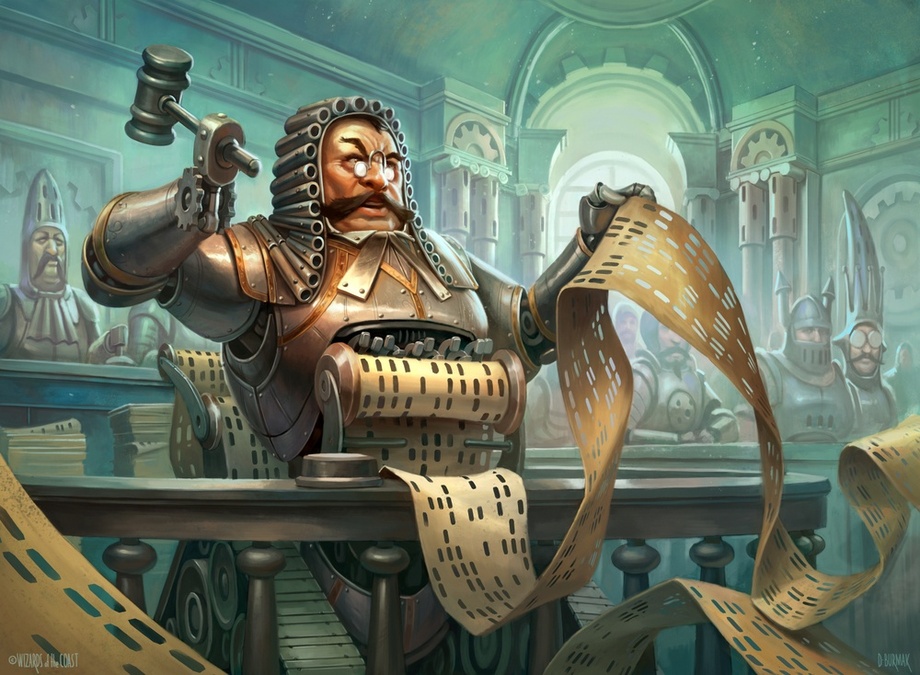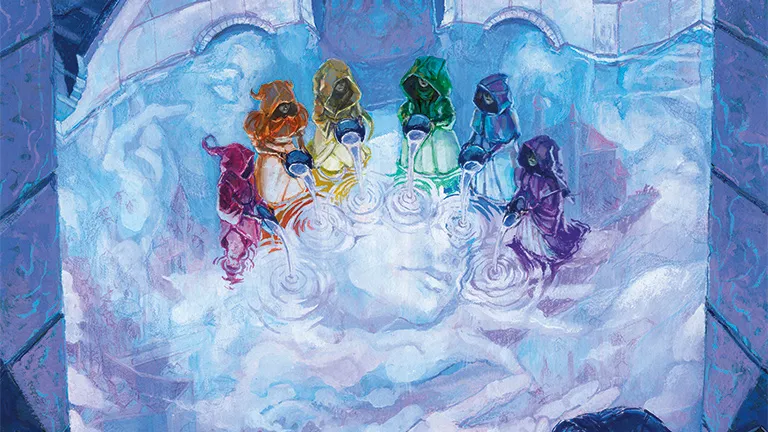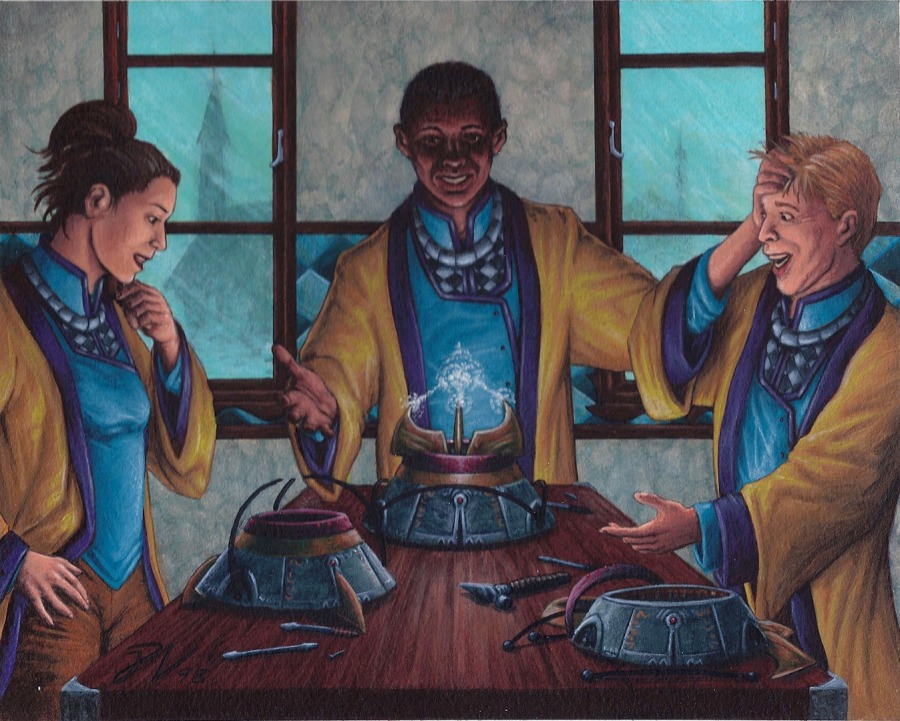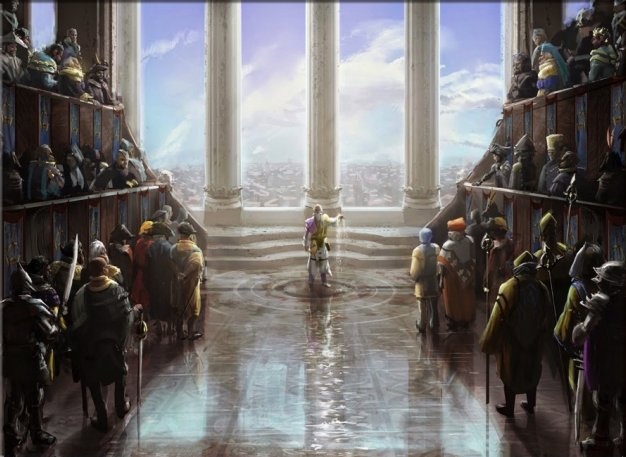Beyond Rule Zero: Stories from the Road

I've been travelling for a while which has meant I haven't had enough time to write a Beyond Rule Zero for a few weeks. Sorry about that. But there has been a great side effect of all the travel I've been doing and that's been having real and honest conversations about diversity in Magic with other players I wouldn't have interacted with otherwise. This week's article isn't going to be as structured as some of the other pieces have been. Instead I want to share some thoughts I've had about Commander, diversity in Magic, and how we talk to each other.
A Chat with The Rules Committee

At Magic 30, I had the opportunity to sit down with Sheldon Menery, Jim Lapage, and various content creators to talk about diversity, equity, and inclusion in Commander and the Commander Rules Committee's role in fostering these things. When we talk about Commander on social media I think we often forget something. Those of us on Twitter or Reddit or YouTube make up a tiny fraction of the greater Magic player base. I would even say this is true of the greater Commander player base. I think it's always important to realize that most people don't even know that the RC and the Commander Advisory Group exist. If we're going to talk about the role these two groups have in shaping the format not just from a rules perspective but from a social perspective, we also have to acknowledge this truth.
During the portion of the conversation I was a part of, we discussed the necessity of having the Rules Committee be more diverse as part of the broader topic of having a more welcoming Commander community. I was asked "what does a diverse RC look like?" This is probably one of my least favorite questions to ever get asked in my line of work. At the best of intentions, I am being asked where the room for improvement is. But at its worst, I am being asked for a checklist. The issue with asking this question is that you can not have a perfectly diverse group of people. Because there are too many identities and experiences out there for a small governing body to be truly reflective. Instead, it is just important to look at who has seats at the table, who has decision making power, and ask if there are too many similarities between those people.
The Sum of Our Parts

During the conversation, Sheldon said that banning cards doesn't affect a Trans woman and a cis man differently. I believe the example he used was Hullbreacher
This is all to say that, yes, bans affect people differently. Singles cost money and my $30 as a marginalized Trans person who works for a non-profit doesn't go as far as someone who works a full time job and has a disposable income to support multiple hobbies. I would never say "don't ban a card because it is expensive" but I think it's important to recognize that people spend money on their decks. And when a card that's relatively new to the format gets banned; the aspect that someone spent $30 on their copy should be considered as part of the impact statement. This loops into why a more diverse RC is important. The idea that the financial impact of banning a card may have on marginalized people was thought to be non-existent.
The Unknown Perspective

Someone asked me what kind of content I make. I said "I write about Magic: the Gathering without talking about the physical aspects of the game or any amount of Magic theory." I usually do this when I don't want to entertain the chance to have to debate someone about diversity and inclusion. The person pushed me for what I meant. "I write about diversity, equity, and inclusion and Magic just happens to be the lens I use." We actually had a pleasant conversation about what that meant, why I do what I do, and why they should read my content. I wish I could go back and record it. But there was something they said that I have come to appreciate a lot in my line of work - "I never thought about this."
It is always great to preach to the choir, it's affirming and there are a lot less headaches. But if all I did was preach to the choir, I wouldn't be doing my job or pushing for any real change. What I hope happens with my content is that it reaches people who hate it, disagree with it, or wouldn't have gone looking for it. It's those people I actually want to engage with because they are the people that need to change - that need to be part of the solution. And sometimes all it takes for that change to happen is for the argument to be presented to them in a certain way.
The biggest example of this is anyone who hears me talk about Reparations
Getting Away from Comfort

I want to close on something I talk about with my clients when it comes to learning. While everything I talk about feels like common sense to me, I'm more than aware that what I teach may be challenging to hear. But this is a good thing. It is when we are uncomfortable that we are in a good place to learn.
Picture it this way: when you're watching Chainsaw Man and vibing in your chair you aren't wanting for anything. You have your snacks, you've got your drink, you've got your favorite show. You're comfortable. Why get up? This is the green zone. There is nothing challenging you so why change. I want you in the yellow.
In the yellow zone, your drink is almost gone. You're down to the last few chips. You're about to finish the episode. It's here where all your needs aren't met. Where you're open to suggestions. Maybe it's time to order pizza. Or grab some water. It might be time to check out that show your friend was talking about. Here we are open to listening and trying things out.
If anything I say makes you uncomfortable or you disagree I'd like to ask you to think about why? Take a step back and check in with your emotions. Because I rarely say things to hurt people. I just want to make this hobby we all enjoy better for everyone. And maybe there is something you need to unpack if you disagree with that.